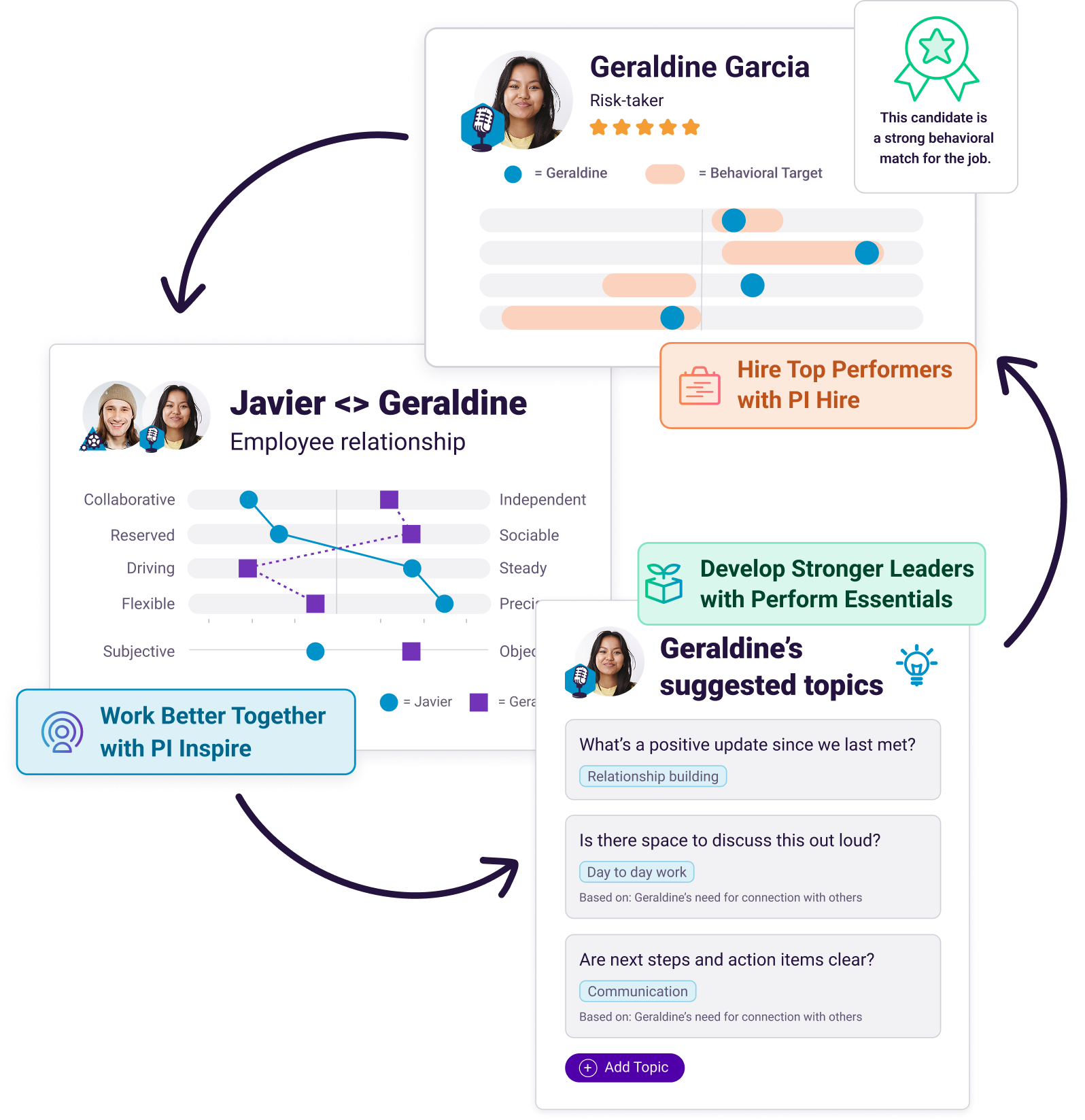All jobs require some level of cognitive ability, and research has demonstrated time and time again that cognitive ability relates to higher job performance in all roles (although the relationship is stronger in more complex job roles). But is there an upper limit? Can you be too smart for a job?
It’s tempting to say yes.
The common misconception is that a candidate might be so smart that they end up getting bored in the role and their performance subsequently drops.
However, there’s really no evidence to support this assumption. Research shows in hundreds of studies there is no upper limit on performance as it relates to cognitive ability, that is, smarter employees will generally be the top performers no matter what.
Consider other abilities or traits that might be useful for performance in a role
Can a musician be too talented? Can a surgeon be too precise? Can a model be too attractive? Baring any ludicrously extreme examples, we can safely say no, these people will have an edge in their roles.
Managers also need to think forward. Smart employees can someday make smart managers.
The misconception that smart candidates might get bored at work stems from the faulty paradigm of the overqualified candidate, perhaps exacerbated by films about handsome math geniuses working as custodians at prestigious universities. I suspect this goes without saying, but this is not typically our reality. People apply to the jobs for which they believe they are qualified. If you are hiring for a cashier position, it is incredibly unlikely that a particle physicist will fill out an application, even in the worst economy.

Hiring smart candidates is a management opportunity
Employees with high cognitive ability will likely be top performers, but managers need to provide them with the resources, support, or leeway to exercise their abilities.
Liz Ryan, contributing writer Forbes, notes in her piece, “Ten Signs You’re Too Smart for Your Job” that one of the signs of employees who are “too smart for their job” is that they are constantly looking for new learning experiences on the job but can’t seem to find any.
She also notes the managers role in this disengagement. “Your boss is happy to come to you with a problem they need to resolve quickly but is not open to hearing that you want to do more and can make a bigger impact on the company than you’re making now.A rigid job role where everything is highly regulated is not a conducive environment to letting employees differentiate themselves. Managers also need to think forward. Smart employees can someday make smart managers. By hiring, supporting, challenging, and eventually promoting a smart person from an entry-level position, a company can continue to enjoy a return on the employee’s high performance for years, not to mention the gain in institutional knowledge.
Join 10,000 companies solving the most complex people problems with PI.
Hire the right people, inspire their best work, design dream teams, and sustain engagement for the long haul.
Think about what Ryan Kahn, career coach, founder of The Hired Group, and Auth of “Hired! The Guide for the recent Grad” said in recent Business Insider article 7 signs you’re too smart for your job”
“We all make mistakes, but if you find yourself consistently finding errors in your bosses’ work or opportunities to elevate their work, could be a sign that you’re too smart for your role,” Kahn says.
Kerr also mentions in the article that if you find yourself constantly looking at your boss and thinking “Wow, I could so do that job,” then you’re probably due for a promotion.
There is not a job in the world where being smart will be a hindrance.
Can an organization legally test for intelligence?
Consider this cautionary example. In 2000, an applicant was denied a job as a police officer solely because he scored too high on a cognitive assessment. He sued, and although he lost, the case remains a great example of how ridiculous it is to willfully reject intelligent workers on the basis of cognitive ability alone. What town would not want as smart a police force as they could muster? In a quickly changing situation that requires split-second judgment, wouldn’t it be desirable to have officers who have a high cognitive ability? These are rhetorical questions by the way. You don’t need to answer. My point is that there is not a job in the world where being smart will be a hindrance.
Now to be fair, the assessment that the police force used misled them by perpetuating the erroneous idea that someone could be too smart for the job, and the police department trusted that test publisher’s guidance. That test publisher ended up removing this advice some years later, but the damage had already been done. And although the court did not find this misuse of the assessment to be illegal, the court did acknowledge that, in light of the evidence, such a practice was “unwise.” To put it another way, it wasn’t too smart.
If you are concerned about the legality of these sorts of hiring and selection tests, be sure to check out our resources of tips for how to create a legal hiring process and even a “don’t get sued” checklist.
So, here’s the golden question…Can you really be too smart for a job? On March 27th at 1:30PM EST our Hire smart people: Easier said than done webinar PI’s own psychometrician shows you how to identify candidates who are the most cognitively capable to do the job, what intelligence really means and how to measure it, and why you’re hiring blind without an understanding of a candidate’s cognitive ability. You can register here: www.predictiveindex.com/hire-smart-people-webinar









